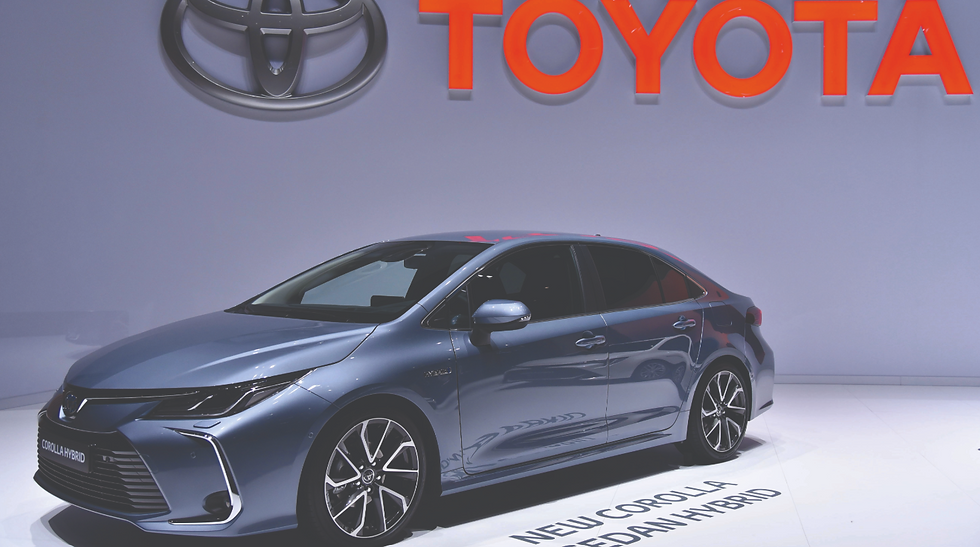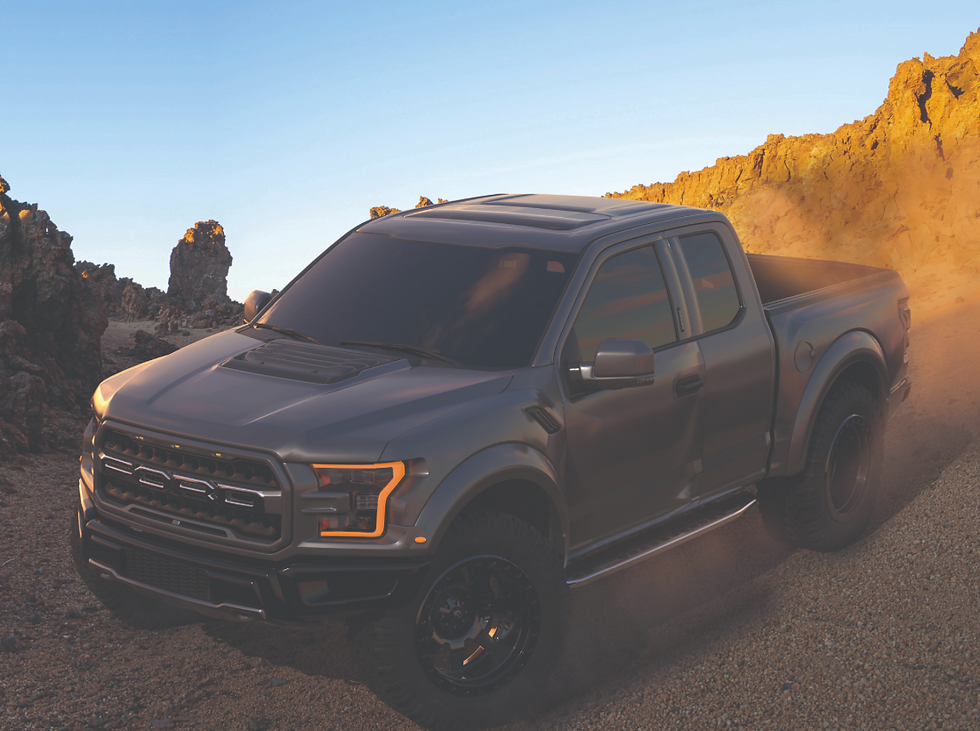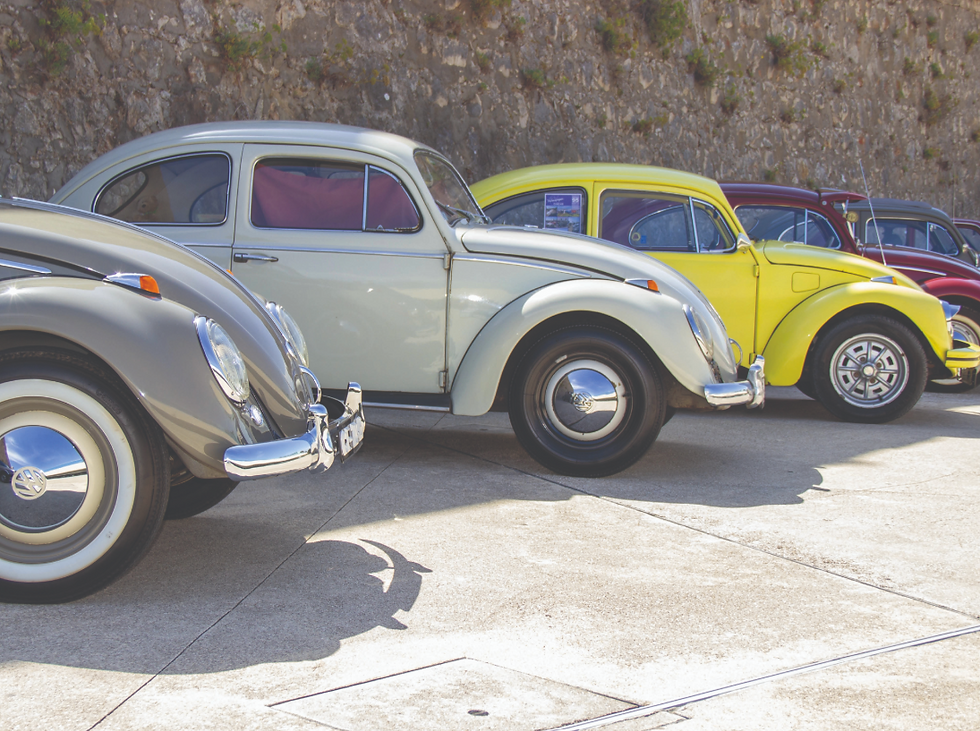The Top 5 Best-Selling Cars of All Time
- David Wheelock
- Jul 29, 2025
- 3 min read

When examining the best-selling cars in history, you are essentially observing a global agreement on what people desire in their vehicles. This reflects not what car magazines suggest they should want, but rather what consumers are willing to spend their money on year after year.
1. Toyota Corolla: The Dependable Workhorse

Sales Figure: Over 50 million since 1966
Corolla’s success story is surprisingly straightforward: it works, it's affordable, and it keeps working. While car enthusiasts might find it uninspiring, millions of drivers have discovered that "uninspiring" often translates to "starts every morning for the next 200,000 miles."
Toyota figured out early that most people don't want their car to be an adventure; they want it to be transportation. The Corolla delivers on that promise with the automotive equivalent of a firm handshake: dependable, honest, and forgettable in all the right ways.
The fact that it's been a top seller for six decades suggests that while automotive technology has evolved dramatically, our basic desire for a vehicle that simply does its job hasn't changed much.
2. Ford F-Series: America's Utility Vehicle of Choice

Sales Figure: Over 35 million (and counting)
The F-Series dominates American sales charts for reasons that go beyond pure utility. Sure, some owners genuinely need the hauling capacity, but many others are drawn to the sense of capability it provides, even if that capability mostly sits unused in suburban driveways.
What's remarkable is how Ford has managed to evolve the F-150 from a work truck into something that works equally well for construction sites and school pickup lines. It's become a Swiss Army knife approach to vehicle ownership: you might not need all the features, but it's reassuring to know they're there.
The truck's 40-year run as America's best-selling vehicle says something about our relationship with the idea of preparedness, even when we're mostly just prepared for a grocery run.
3. Volkswagen Golf: Europe's Practical Compromise

Sales Figure: Over 35 million worldwide
The Golf succeeded by threading a tricky needle: it's practical enough for daily use but just engaging enough to drive that owners don't feel like they've given up on life. It's the automotive middle ground between pure utility and actual fun.
European buyers have embraced the Golf because it fits their driving environment, compact enough for narrow city streets, efficient enough for expensive fuel, but capable enough for the occasional highway trip across countries. It's sized for reality rather than aspiration.
The Golf also pioneered the idea that a small car didn't have to feel cheap. Previous compact cars often seemed like stripped-down versions of larger vehicles, but the Golf felt intentionally designed for its size category.
4. Volkswagen Beetle: The Car That Transcended Transportation

Sales Figure: Over 21 million across both generations
The Beetle's sales success is almost accidental. It became popular for reasons that had little to do with conventional automotive virtues. In the 1960s and '70s, it represented counter-culture values and economic practicality. When VW revived it in the late '90s, it tapped into nostalgia and retro appeal.
What's interesting is how the Beetle succeeded despite being objectively flawed in many traditional automotive metrics. It was slow, had questionable heating, and offered minimal storage. But it had character, which turned out to be more valuable than many manufacturers realized. The Beetle proved that sometimes people will choose personality over performance, especially when the personality comes at an affordable price.
5. Honda Civic: The Steady Performer

Sales Figure: Consistently strong across multiple decades
The Civic has maintained its popularity by being the automotive equivalent of a good student. It does well in most categories without necessarily being the best at any single thing. It's fuel-efficient without being underpowered, practical without being boring, and reliable without being expensive to maintain.
Honda's approach with the Civic has been evolutionary rather than revolutionary. Each generation improves incrementally, which means current owners feel good about upgrading while new buyers aren't intimidated by unfamiliar technology or design choices.
The Civic also benefits from Honda's reputation for engineering integrity. Buyers trust that the company won't cut corners in ways that will cost them money later – an asset in a market where many manufacturers have tested that trust.
What These Results Actually Tell Us
These five vehicles have succeeded by solving real problems for real people. The Corolla offers dependability, the F-Series provides capability (real or perceived), the Golf balances efficiency with engagement, the Beetle delivers personality, and the Civic provides well-rounded competence.
None of them is perfect, but they're all good enough at enough things to justify their purchase for millions of drivers. In a market filled with niche vehicles and specialized solutions, these cars succeeded by being generalists, vehicles that work well enough for most people's needs most of the time.




Comments